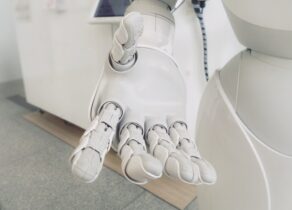AI-powered robots’ potential to become sentient has sparked heated discussion and conjecture among scientists and technology professionals. Concerns regarding the ethical consequences of producing robots with human-like awareness are growing as AI technology improves.
The current AI in the robotics industry is worth more than $40 billion and is likely to grow in the future years. According to MarketsandMarkets, AI in the robotics market will be worth $105.8 billion by 2026, with a CAGR of 19.3% from 2021 to 2026.
This article will discuss what sentience means in robotics, along with the possible benefits and challenges.
Robots and AI
Artificial intelligence refers to the ability of machines or computer programs to perform tasks that typically require human intelligence. This includes perception, reasoning, learning, decision-making, and natural language processing. AI systems can be trained using large amounts of data and algorithms to make predictions or perform specific actions, often improving over time as they are exposed to more data.
There are several types of AI, including narrow or weak AI, which is designed for a specific task, and general or strong AI, which can perform any intellectual task that a human can. AI is used in many industries to improve efficiency, accuracy, and decision-making, including healthcare, finance, and customer service.
However, it is essential to note that AI is not a replacement for human intelligence but rather an extension that can assist and enhance human capabilities. Ethical considerations around AI, such as its impact on jobs and privacy, are essential to keep in mind as it advances and becomes more integrated into our daily lives.
What Is AI Sentience in Robotics?
The notion of AI sentience refers to the ability of a robot or artificial system to have subjective experiences such as emotions, self-awareness, and consciousness. This extends beyond a robot’s capacity to complete tasks or make decisions based on algorithms and data to construct a genuinely autonomous being with its own subjective experiences and perceptions.
In robotics, AI sentience means that a robot is designed to execute particular activities and can make decisions, feel emotions, and interact with the environment in a manner comparable to that of a human being.
One example of AI sentience in robotics is the case of the AI robot named ‘Bina48’. Bina48 was created by a company called Hanson Robotics and is designed to exhibit human-like qualities such as emotions, self-awareness, and the ability to hold conversations. Bina48 was created using information and data collected from its human ‘source’, a woman named Bina Rothblatt.
The robot uses advanced AI algorithms to process information and respond to stimuli in a way that mimics human behaviour. Bina48 has been used in various experiments to test the limits of AI sentience and has been shown to exhibit a range of emotions and respond to different situations in a way that suggests a level of consciousness. This robot is a fascinating example of the potential for AI sentience in robotics and the future of AI technology.
Read the full article here.






